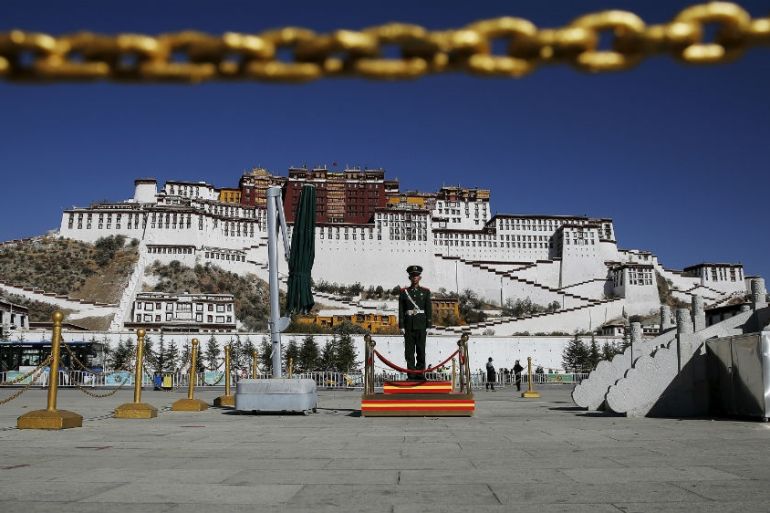China vows easier foreign tourist entry to Tibet amid US pressure
US passed law in December banning entry to Chinese officials deemed responsible for restricting Tibet access.

The Chinese government in Tibet has said it will increase the number of foreign tourists allowed to visit the highly-restricted region and reduce waiting times for paperwork amid renewed pressure from Washington to improve access for US officials and journalists.
US President Donald Trump had signed the Reciprocal Access to Tibet Act in December, which seeks to press China to open the region by refusing to issue US visas to Chinese officials deemed responsible for restricting access to Tibet.
Keep reading
list of 4 items‘Children of the Ganges’ — The boatmen of India’s Varanasi
US senators call on Biden to sanction Sudan’s RSF over human rights abuses
Israeli attack kills 10, mostly children, in Gaza’s Rafah
Beijing denounced the law at the time as interference in China’s internal affairs, risking “serious harm” to ties with Washington.
|
|
China and the United States are trying to hammer out a deal to end a simmering trade dispute that has threatened to sour the relationship across the board, including on issues such as security and human rights.
The Tibetan government will shorten the time required for foreign tourists to gain access to the region by half and boost the numbers allowed into the area by 50 percent, Qizhala, chair of the regional government, said in an annual work report published by the official Tibet Daily newspaper on Friday, according to Reuters news agency.
The US also issued a travel advisory last week that warned about extra security checks and increased police presence in both Tibet and the mostly-Muslim region of Xinjiang. The travel advisory also warned citizens of the risk of arbitrary action by Chinese authorities.
Non-Chinese visitors must apply for a special permit to travel to Tibet, which is usually granted for tourists provided they travel with approved tour companies. Journalists and diplomats are rarely accepted.
‘Fast deteriorating’
Beijing has ruled Tibet with an iron fist since Communist Party troops marched into the region in 1950 in what it calls a “peaceful liberation”.
Qizhala also pledged that the administration in Tibet would “take a clear-cut stance in the fight against the Dalai clique”, a reference to exiled spiritual leader the Dalai Lama.
|
|
“We must improve the monastery management and service mechanisms to defend the bottom line of Tibetan Buddhism not being manipulated by foreign forces,” he said.
Rights groups and overseas activists say ethnic Tibetans face widespread restrictions under Chinese rule and the United Nations Human Rights Council (UNHRC) said in June conditions were “fast deteriorating”.
This year marks the 60th anniversary of a Tibetan uprising against Chinese rule in 1959. Supporters of Tibetan independence and of the Dalai Lama have staged protests in the past to mark the uprising’s anniversary, angering China.
China claims the Dalai Lama, the spiritual leader of Tibetan Buddhism who fled into exile in India after the failed uprising, is a “dangerous separatist”.
The Nobel Peace laureate denies espousing violence and says he only wants genuine autonomy for Tibet.